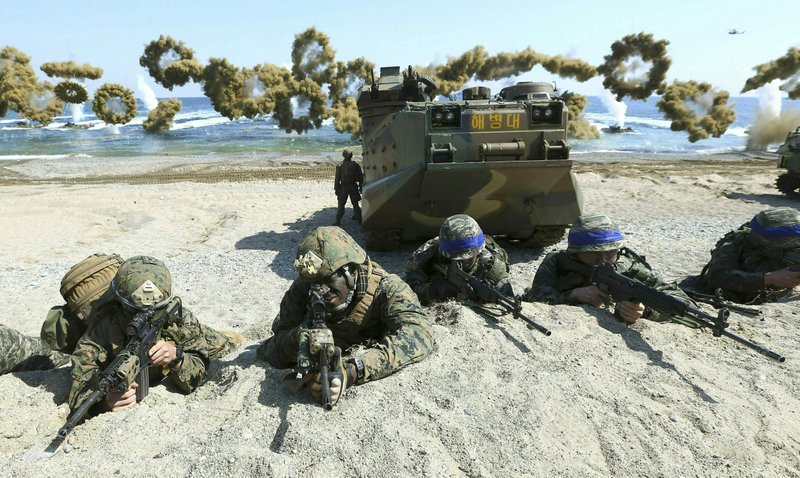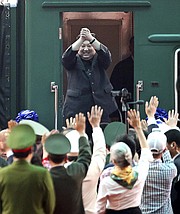SEOUL, South Korea -- South Korea and the U.S. are eliminating their large springtime military drills and replacing them with smaller exercises as part of efforts to support diplomacy aimed at resolving the North Korean nuclear crisis.
The Pentagon disclosed the decision Saturday evening after a phone call between acting Defense Secretary Patrick Shanahan and his South Korean counterpart, Defense Minister Jeong Kyeong-doo.
They agreed "to conclude" the Key Resolve and Foal Eagle series of exercises, replacing them with "newly designed Command Post exercises and revised field training program," according to a Pentagon statement.
"The Minister and Secretary made clear that the Alliance decision to adapt our training program reflected our desire to reduce tension and support our diplomatic efforts to achieve complete denuclearization of the Korean Peninsula in a final, fully verified manner," the statement said.
Seoul's Defense Ministry released a similar statement.
Jeong expressed his regrets at the lack of agreement at a recent summit between President Donald Trump and North Korean leader Kim Jong Un but still hopes that Washington and Pyongyang would continue negotiations, the South Korean statement said.
The new training, dubbed "Dong Maeng," which means "alliance" in English, starts Monday and will continue through March 12. It will focus on "strategic operational and tactical aspects of general military operations on the Korean Peninsula," South Korea's military and the U.S.-South Korean combined forces command said in a joint statement.
According to U.S. officials, the new training will be done in smaller drills, tabletop exercises and simulations, and it will involve smaller units, such as battalions and companies rather than formations involving thousands of troops, as it had in the past.
Officials said the Pentagon will focus on mission essential tasks, which include the ability to integrate airstrikes and the use of other weapons systems, drones, surveillance assets, logistics and communications.
Last November, a month before he resigned as defense secretary, James Mattis disclosed that the U.S. and South Korea would scale back the spring exercises. He said the aim was to avoid setting back diplomacy over North Korea's nuclear weapons.
Trump has long complained about the cost of military drills with South Korea.
After his second summit with Kim ended without an agreement in Hanoi on Thursday, Trump again complained about the cost of annual military drills. "It's a very, very expensive thing and we do have to think about that, too," Trump told reporters.
After his first summit with Kim in Singapore last June, Trump caught many in the U.S. and South Korea by surprise by suspending the allies' summertime military drills. He called the joint drills "very provocative" and "massively expensive."
The U.S and South Korea also have since suspended a few other smaller joint drills.
North Korea has described the springtime war games as a rehearsal for invasion and responded with its own costly military exercises and weapons tests, including firing a new intermediate-range missile over Japan last year.
North Korea's state media on Sunday didn't immediately comment on the drills' cancellation.
The Korean Peninsula remains in a technical state of war because the 1950-53 Korean War ended with an armistice, not a peace treaty. About 28,500 American soldiers are deployed in South Korea to deter potential aggression from North Korea.
Information for this article was contributed by Dan Lamothe of The Washington Post.
A Section on 03/03/2019

